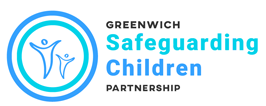Critical thinking and reflection: toward a more analytical approach to practice
Date & Time:
Venue:
Detail:
When practitioners are concerned about the welfare of a child they are often having to make sense of complex information in conditions of uncertainty. They may have contradictory information or a sense of concern without necessarily having concrete evidence to back up these concerns. Practitioners may be worried about a child or young person but find it difficult to be precise about the nature of those worries and the impact of harm upon a child. This one day course seeks to promote models of analysis and reflection that can help practitioners navigate these challenges and in so doing facilitate helpful conversations between professionals and with families as to how children's welfare can be safeguarded.
Learning objectives
- Understand the current context of child protection work and some of the common dilemmas and challenges facing practitioners
- Present models of analysis and reflection that can promote critical thinking when there are concerns about a child
- Explore how critical thinking can be applied to the legal concept of significant harm
- Discuss the relevance and importance of professional curiosity and identify some of the barriers that close down curiosity
- Recognize how critical thinking and reflection can facilitate an understanding of the diverse backgrounds of families and the impact of discrimination whether that be racism or structural issues such as poverty
- Develop the ability to apply analytical and reflective models that promote both child centred practice and partnership working with families
